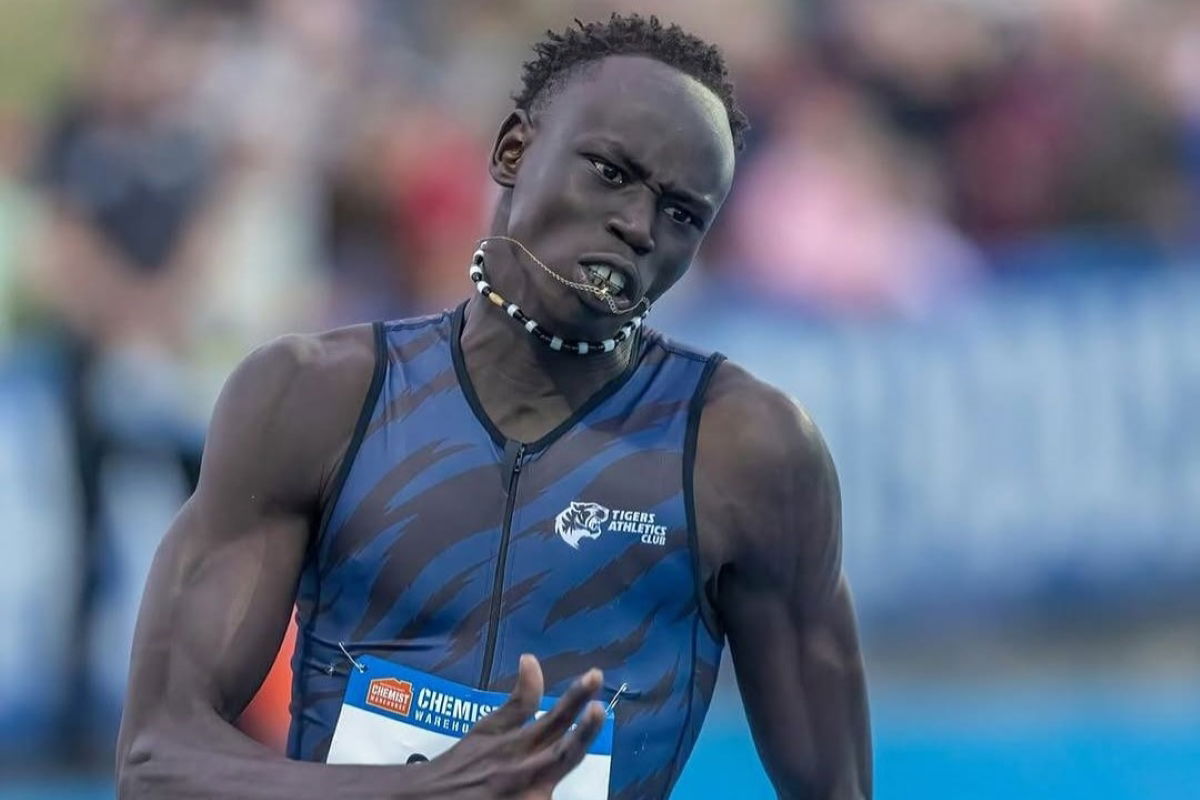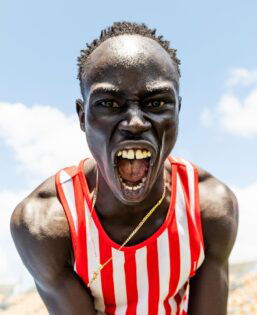

In the midst of increasing racial tension in Australia, Gout Gout, a 16-year-old sprinting sensation, broke Oceanian’s 200m record, outshining Norman’s record and Usain Bolt’s world age-16 top. Recently, he has been facing significant online abuse due to his name and identity. The backlash undermines the hurdles that athletes from diverse backgrounds come across, as their identities are frequently misunderstood or ignored in mainstream contexts. And this ought to change.
Watch What’s Trending Now!
Gout’s father, Bona Guot, corrected the pronunciation of his son’s name, specifying that it should be “Guot,” not the widely mispronounced “Gout Gout.” Bona explained, “His name is Guot,” underscoring the deeper issue of identity for him in a predominantly monolingual society. His manager, James Templeton, denied the plea to correct his name as well.

So how does it happen? The wrong name that is –“Gout ” is a result of a clerical mishap. The worst part is that this name is associated with a disease, due to which he’s facing derogatory comments and discrimination over online platforms as well, apart from already facing trolls and being a target of racism in Australia. This escalated after Guot’s father, Bona Guot, appealed for the correct pronunciation of his son’s name; “G-W-O-T”. It is more than just a matter of linguistics; it’s a call for cultural respect and recognition. He stated, “His name is supposed to be Guot.”
Bona’s insistence on the correct pronunciation of Gout’s name underscores the broader issue of identity in sports. It reflects how challenging it can be for athletes from minority backgrounds to be seen and heard as their true selves, no matter how far they’ve come. The backlash against the mispronunciation of his name highlights the deeper struggles for cultural acceptance in the world of professional sports, even at this stage, which is very disheartening.
“Gout ” or “Guot”?
Even after Gout’s father repetitive call for respect and recognition, his manager, James Templeton, has chosen to reject the request for changing the name. He stated lightly, “Firstly, it is Gout Gout…yeah, yeah, I know there’s been a bit of discussion, and I know his dad made a few comments, but Gout Gout is how it’s gonna be.” This refusal and ignorance towards him highlights a major issue here altogether. This points to the difficult balance athletes must strike between maintaining their cultural authenticity and managing their high-profile careers in these times.
All in all, this decision underscores a resistance to challenge the systemic issues of racism and cultural insensitivity that continue to impact athletes from minority backgrounds. It will end up risking further alienation and backlash if the name change were to be accepted. Templeton’s stance reflects the broader challenges faced by athletes like Gout in maintaining their true identities while pursuing success in such a harsh environment– the sports world.
The controversy over Gout’s name underscores the complex dynamics of identity and inclusion in Australian sports. Bona Guot’s insistence on the correct pronunciation is a call for cultural recognition and respect, while Templeton’s refusal reflects a reluctance to address deeper issues of racism and cultural erasure. As he navigates his career, it’s clear that achieving cultural recognition and career success in a monolingual society is a challenging balancing act for athletes from diverse backgrounds. This case serves as a reminder of the need for systemic change in how sports manage and respect cultural identities.

